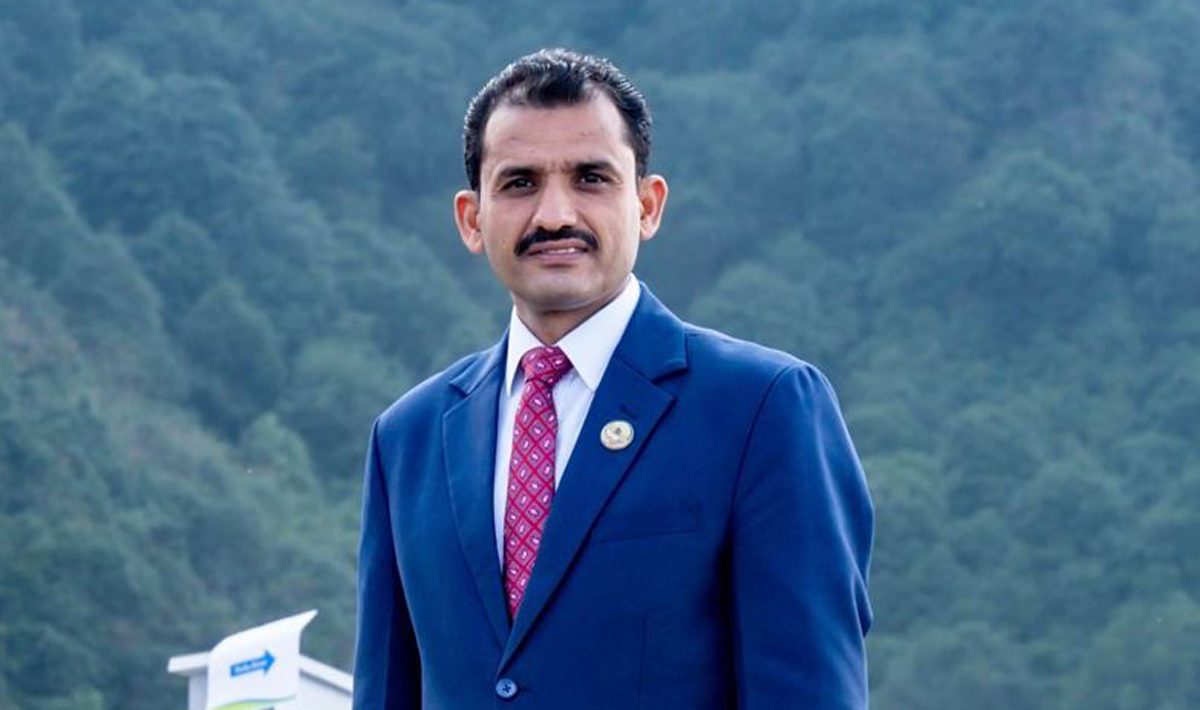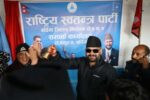KATHMANDU: The government led by Prime Minister and CPN-UML Chairman KP Sharma Oli has not yet convened the ‘Bill Session’, or the winter session of parliament, which is essential for lawmaking.
By halting the winter session, the government has moved forward with amending 27 laws through four ordinances.
President Ram Chandra Poudel has already certified four of the five ordinances sent to Sheetal Niwas.
Opposition parties, including the Maoist Center, the Rastriya Swatantra Party (RSP), the Rastriya Prajatantra Party (RPP), the Unified Socialist, the Janamat Party, and the Janata Samajwadi Party (JSP), have expressed their opposition, accusing Prime Minister Oli of bypassing parliament by issuing ordinances instead of calling the winter session, which should have been convened by the second week of the Nepali month of Poush.
However, the opposition has yet to present a united front to operate the parliament.
In light of the government’s move to govern through ordinances without opening parliament, Khabarhub spoke with Madhav Sapkota, a leader of the Maoist Center and Member of Parliament from Sindhupalchowk.
We discussed the opposition’s stance on the ordinances, steps to take if parliament remains closed, and other related issues.
The government has amended 27 laws through four ordinances while parliament is not in session. Is the opposition aware of this?
The opposition has not been formally informed yet. I also asked our party chairman, Pushpa Kamal Dahal Prachanda, and he confirmed that no formal information has been received.
However, informally, it’s all over the place. There is information circulating that the President has certified the ordinances, but the opposition has not been officially notified.
It was evident that the ordinance was coming, but the opposition is staying quiet. Did the parties not even meet to discuss it?
We are speaking out. Personally, at every public event, I’ve raised concerns about the ordinance. We are saying that the government is moving toward autocratic rule. This is exactly what’s happening.
The government has bypassed parliament, and this is wrong. Last time, the government had already presented the pre-budget to parliament, and we were in the pre-budget discussion.
We should have had a similar discussion this time too. The budget and policy programs should have been debated, but that didn’t happen.
The government’s decision to bypass parliament is wrong. The government should immediately convene both the federal and provincial assemblies.
We believe the government must return to functioning in alignment with parliamentary processes.
There are many businessmen and other interests behind the ordinances. Why hasn’t the opposition united?
What we are hoping for is that the government will still attempt to convene parliament and move forward in a natural, democratic rhythm.
We are urging the government to act in line with our expectations, and we are vocal about this.
Opposition leaders are putting forward their views, so let’s see how the government responds. Time and again, opposition leaders have urged the government to listen to our concerns.
On Friday, before the ordinance was passed by the Council of Ministers, the opposition parties gathered at Singha Durbar. Why didn’t the opposition meet with the Prime Minister at that time to urge him to convene parliament?
After discussing this issue, the leaders of the main opposition parties told the government and the Prime Minister not to follow the path of ordinances.
They have said this both in private meetings and publicly. However, KP Oli has repeatedly refused to follow parliamentary practices.
He dissolved parliament before and bypassed the legislative process. Some ordinances failed when parliament wasn’t functioning, but even after repeated reminders, he didn’t accept any new approach. Oli’s stance is well-known to everyone.
The Nepali Congress, which claims to be a champion of democracy, has also moved in the direction of issuing ordinances, deceiving its own MPs.
This is a highly unusual and concerning development. The Nepali Congress has long prided itself on being a pro-democracy, senior, and mature party.
However, looking at its current actions, there is nothing to see but a regression into KP Oli’s autocratic style and the use of ordinances.
The Congress has failed to provide an alternative perspective or even argue against this approach.
It is astonishing that even a party like Congress, which considers itself the protector of democracy, has fallen into this backward path. This is troubling for democracy.
In your opinion, what should the Nepali Congress have done at this time?
The Nepali Congress should have played a more active role in convening the parliamentary session within the first week of Poush.
The pre-budget should have been tabled by the government, and parliamentary committees should have moved forward with the introduction of key bills.
The UML-Congress alliance, which holds a majority in the parliamentary committees, should have been more active and engaged.
However, the quorum in the committee has not been reached due to the absence of Congress and UML representatives, and as a result, important work is stalling. Even those who do attend are wasting time submitting lengthy reports that go nowhere.
In this way, Congress and UML have shown little interest in making progress with legislative work or in convening parliament to discuss the pre-budget.
Many issues important to the people should have been debated, but this has not happened.
As a partner in the government and a major political force, Congress failed to contribute to the rule of law in the way it should have.
Instead, Congress has become a silent partner to Oli’s leadership, failing to speak out or take action.
We are puzzled by what is pressuring Congress to remain quiet. The government’s approach of bypassing parliament and governing through ordinances is wrong. Parliament should be convened immediately and made effective.
Chairman Prachanda has said that this situation will cause chaos within the alliance and ultimately bring down the government. Do you agree?
There is definitely chaos within this alliance. From the very beginning, we have said that this alliance was formed out of necessity, not desire.
Leaders and workers from both parties were forced into this union when they could have faced jail time if the two parties didn’t merge.
It was not the desire of the leadership, but rather a matter of compulsion.
The question remains: Why did such an alliance form when these parties are competitors?
If this alliance had not been formed, the Maoists would have jailed all the corrupt individuals, which would have left the Congress and UML isolated.
This compulsion created a situation where these parties could work together.
However, they did not come together based on shared ideals, methods, values, or beliefs.
This is a merger of interests, not a merger of ideas. I believe that this alliance will collapse when a new situation arises.
It seems that the Maoists are the ones trying to break the alliance. Is that correct?
If this is the case, then there is no need for us to break the alliance. If the Nepali Congress had any values, norms, or dignity, they should have spoken up within the alliance when such an ordinance was introduced.
However, Congress has become consumed with empty ideals and its leaders have become so entangled in the pursuit of power that they no longer know right from wrong. This is truly sad.
It is not right for Congress leaders to follow along in such a situation. A relationship based purely on self-interest does not last long—it will break apart.
What will President Ram Chandra Poudel do when he returns to Parliament after certifying the ordinances?
First, we must examine the ordinances. We should not assume that ordinances should never be brought forward. It is too late to call a parliamentary session, but there should be attention to that issue.
We have seen media reports about the ordinances, but we have not yet reviewed them officially.
Some amendments to Nepalese laws seem to have been manipulated or infiltrated, and there are claims that certain provisions benefit corporate interests.
If the ordinances contain provisions that serve corporate interests or specific interest groups, we, the opposition, will strongly oppose them in parliament.
The Constitution mandates that ordinances must be tabled in parliament within 60 days. If they are in the interest of the country and the people, we will pass them.
However, if they are made to serve corporate interests or particular groups, we will oppose them and ensure they do not succeed.
Do the leaders know that parliament is supposed to start, or are they unaware?
Some time ago, the parliamentary process was of great interest, but now the situation has reached the point where a budget is being brought forward without any pre-budget discussions.
Initial discussions and preparations for the new budget are ongoing at the ministry, but the pre-budget debate should be happening in parliament, not behind closed doors. The failure to do so is a significant issue.
If the government does not convene parliament immediately, it seems that the pre-budget process will be sidelined. Given these developments, there is an obligation to convene parliament.
If they fail to do so, the opposition will need to unite and follow the system of one-fourth demands.
Isn’t it too late to demand action through signatures? Why is the opposition silent?
Both the royalists and the Maoists are in the opposition, which complicates unity.
However, they should be united on the issue of convening parliament. We are also hearing statements from the leaders of the RPP and the RSP.
Therefore, the question of disunity between the royalists and the Maoists should not be raised here.
While their party positions may differ on certain issues, they are all opposed to the government’s use of ordinances to bypass MPs.
All opposition parties should come together to voice their concerns. If unity is not achieved, the opposition should resort to the constitutional provision of one-fourth demands.









Comment